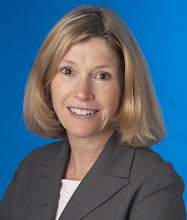A couple of weeks ago I was fortunate to attend the annual “D: All Things Digital” conference sponsored by the Wall Street Journal and co-produced by preeminent technology journalists Walt Mossberg and Kara Swisher. The format for “D” is somewhat unique in that, instead of executive keynotes or ‘fireside chats” that are typical at executive conferences, “D” features a series of executive interviews. Usually these are done mano a mano where Walt or Kara interview a specific exec but sometimes the format varies slightly and two execs from the same company are interviewed by Walt and/or Kara. The interviews last about 45 minutes and there is time for Q&A.
This interview format works particularly well at "D" because of the interviewing skills of both Kara and Walt. Because of their long-term experience in the tech and media industries, they are able to ask insightful, hard-hitting and thought-provoking questions.
As a communications professional, it’s interesting to observe each executives’ prowess in handling the interview itself. Do they answer the questions directly? Do they dodge the tough questions? Is he or she a master of spin? Or, are they honest and straightforward. Are they off message or on?
And, of course, content is key. Do they have anything to share in their answers? Do they know their business backwards and forwards? Can they articulate a clear mission/vision or raison d’etre for their company? Is there a strategy? Do they have a sense of the future and how to win the competitive battle at hand or ahead? Do they understand the technology trends and how to take advantage of them? Do they know the specific drivers impacting the day-to-day business, the key stats that keep the motor humming?
Throughout each interview the listening audience, comprised of nearly 400 technology industry veterans, several dozen leading tech journalists, bloggers and pundits, large corporate CIO’s and representatives from all the leading venture firms, is evaluating the executive based on an ongoing analysis of the above dimensions.
It’s a wonder any of them get through this wringer unscathed. Surely, aside from a raucous shareholder meeting, this may be the most challenging interview situation ever faced by many of these executives.
So, this year. Who won and who lost the battle. Well, the clear winner in my mind, and many others whom I spoke with, was Rupert Murdock the founder, majority owner and long-time CEO of News Corp. News Corp is perhaps the largest and most diversified media conglomerate in the world, owning newspapers like The Australian, The London Times, The New York Post and as of last year The Wall Street Journal, online leaders such as My Space, television networks such as Fox News and Star Broadcasting, and the Fox movie business, as well as, the All Things Digital conference. So, it was quite interesting when Murdock took the stage and sat down to answer a series of questions from Walt and Kara. And, even though he is their boss, Walt and Kara asked tough, serious questions about all of the News Corp businesses.
Throughout the interview, Murdock was the face of relaxation, clearly enjoying the banter and give and take. Because he approached it more like a discussion than an interview, he came off as relaxed, comfortable, and enjoying the back and forth. At the same time, he demonstrated a firm grip on all the fundamentals of his business, clearly communicated a sense of vision and long-term commitment, showed that he understood the technology, competitive scenarios and drivers behind each specific business. It was a showcase of how to handle the tough interview for any executive to watch and learn from. You can see some of the video highlights here at the AllThingsD website.
Showcase that against other attempts that left the audience confused in one case, and decidedly lukewarm in another. When Jerry Yang and Sue Decker, CEO and President of Yahoo! took the stage there should have been a single, over arching goal: regain credibility. Despite Walt and Kara’s best efforts to illicit a clear articulation of their business direction, strategy, value and, indeed, their own sense of leadership, neither Yang or Decker were able to step up to the challenge. Their answers left the audience with more questions and did nothing to clarify important issues of direction for the company. An opportunity was lost.
Bill Gates and Steve Ballmer were interviewed the first night of the conference, and although their message was articulated more clearly, they still could not convince this audience that they had a viable strategy going forward to effectively combat the frontal assault of Google.
Lastly, a miss was also made by Mark Zuckerberg, Facebook CEO and new COO Sheryl Sandberg. Clearly the darlings of this crowd, there was probably more residual support for this duo than any of the others. Unfortunately, Zuckerberg was over-rehearsed and could only manage to repeat a one-line mantra over and over, never answering a fundamental question of “why” and Sandberg valiantly tried to illustrate the company’s advertising potential with two relatively weak examples.
The most creative attempt to control the interview had to go to Jeff Bewkes, CEO of Time Warner who, when being interviewed by Swisher, reframed her questions by describing what she was really wanted to asked but didn’t. It worked; he was able to effectively recast the tough questions which enabled him to communicate the information he wanted to.
Tuesday, June 17, 2008
Reflections on the "D" Conference
Labels:
communications strategy,
conference,
media,
public relations
Subscribe to:
Post Comments (Atom)


No comments:
Post a Comment